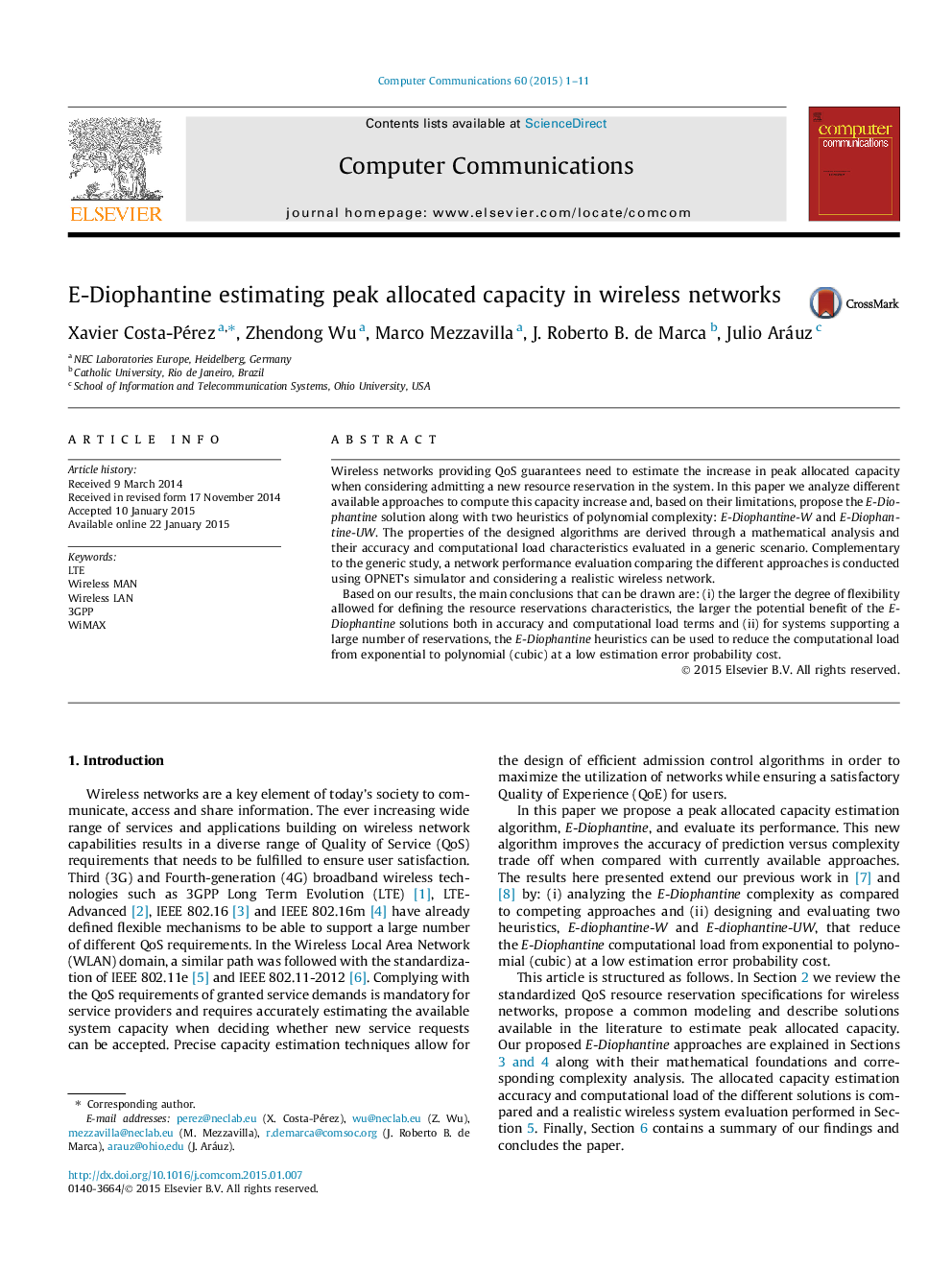| Article ID | Journal | Published Year | Pages | File Type |
|---|---|---|---|---|
| 450006 | Computer Communications | 2015 | 11 Pages |
Wireless networks providing QoS guarantees need to estimate the increase in peak allocated capacity when considering admitting a new resource reservation in the system. In this paper we analyze different available approaches to compute this capacity increase and, based on their limitations, propose the E-Diophantine solution along with two heuristics of polynomial complexity: E-Diophantine-W and E-Diophantine-UW. The properties of the designed algorithms are derived through a mathematical analysis and their accuracy and computational load characteristics evaluated in a generic scenario. Complementary to the generic study, a network performance evaluation comparing the different approaches is conducted using OPNET’s simulator and considering a realistic wireless network.Based on our results, the main conclusions that can be drawn are: (i) the larger the degree of flexibility allowed for defining the resource reservations characteristics, the larger the potential benefit of the E-Diophantine solutions both in accuracy and computational load terms and (ii) for systems supporting a large number of reservations, the E-Diophantine heuristics can be used to reduce the computational load from exponential to polynomial (cubic) at a low estimation error probability cost.
